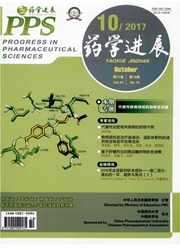

 中文摘要:
中文摘要:
肝糖异生是体内维持正常血糖水平的重要过程,肝糖异生代谢紊乱为2型糖尿病的病理特征之一。磷酸烯醇式丙酮酸羧激酶(PEPCK)和葡萄糖-6-磷酸酶(G6pase)等是机体调节糖异生的关键酶,而这些关键酶的表达又受细胞内的一些转录因子和辅激活因子的调控。过氧化物酶体增殖物激活受体1辅助激活因子α(PGC-1α)是体内能量代谢过程中的关键性转录调控因子,通过多种途径和方式参与调节糖异生。通过对PGC-1α表达及活性的调节,有望成为2型糖尿病药物治疗研究的新靶点。文章对PGC—1α在糖异生中的调节作用和PGC-1α表达及活性的调节;以及在2型糖尿病治疗中,涉及PGC-1α调节肝糖异生过程的药物作了综述。
 英文摘要:
英文摘要:
s Hepatic gluconeogenesis is a vital process in maintaining a normal blood glucose. Hepatic gluconeogenesis disorders are the pathological feature of type 2 diabetes mellitus. Gluconeogenesis is mainly controlled by the gluconeogenic key enzymes, such as phosphoenolpyruvate carboxykinase (PEPCK) and glucose-6-phosphatase (G6pase), whose expressions are regulated by some transcription factors and co-activators. Peroxisome proliferators-activated receptor-α,coactivator-1 (PGC-loL) is a key transcriptional co-activator for energy metabolism and glycometabolism in metabolic pathways. Regulation of the expression and activity of PGC-1α is expected to provide new target for type 2 diabetes drug development. This review focuses on the regulation of expression and activity of PGC-1α and its regulatory effect on hepatic gluconeogenesis, and the drugs working on this effect to treat type 2 diabetes mellitus.
 同期刊论文项目
同期刊论文项目
 同项目期刊论文
同项目期刊论文
 期刊信息
期刊信息
